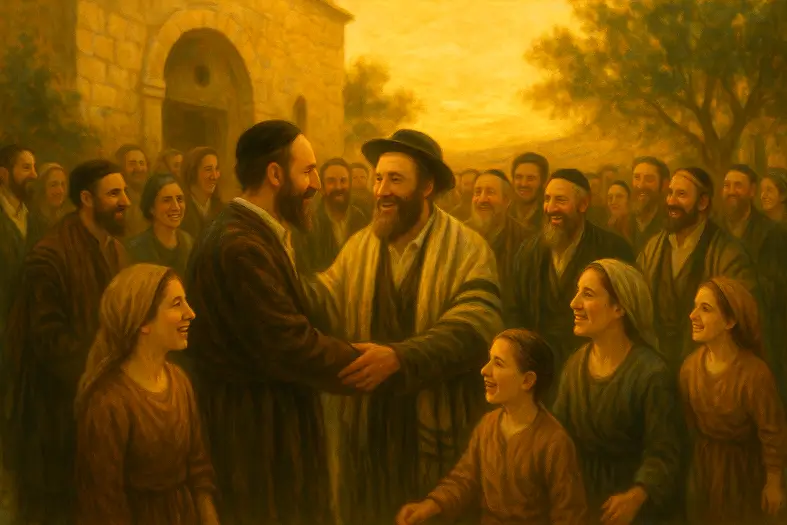


It is forbidden to harbor hatred against another Jew in one’s heart.
This mitzvah prohibits hidden or lingering hatred toward fellow Jews. Rambam (Hilchot De’ot 6:5) codifies that one must not bear silent resentment, but instead address grievances directly. Hatred corrodes relationships, fractures unity, and distances one from Hashem. Sefer HaChinuch (Mitzvah 238) explains that this mitzvah fosters peace and removes the poison of grudges from the community.
The Talmud (Pesachim 113b) warns that hatred of fellow Jews is among the traits Hashem despises. Midrash (Sifra Kedoshim §4) stresses that hatred must not be hidden, for what festers in the heart leads to greater sin. Rashi (Lev. 19:17) comments that the prohibition is specifically against concealed hatred, while open rebuke (Mitzvah 16) allows healing. Ramban expands that hatred, even unexpressed, corrupts the soul and undermines the command to love one’s fellow (Mitzvah 13).
Commentary & Classical Explanation:
Contrast with Love of Fellow Jews (Mitzvah 13):
Parallel to Rebuke (Mitzvah 16):
Guarding the Heart
Root of Unity
Counter to Baseless Hatred
Healing Through Communication
A Step Toward Ahavat Yisrael
Living Kiddush Hashem


Reflects mitzvot rooted in love—of G‑d, others, and the world we are entrusted to uplift.
Acts of generous giving that extend beyond obligation — offering help, support, or goodness simply because another person exists. Chesed is proactive, abundant care that heals the world through open-hearted action.
Empathy in motion — responding to another’s pain with sensitivity, patience, and understanding. Whereas chesed gives broadly, rachamim responds gently, tailoring care to a person’s emotional or spiritual needs.
Mitzvot that uphold fairness, honesty, and moral responsibility. Justice is kindness structured — ensuring that society reflects G-d’s order through truth, equity, and accountability.
Practices that cultivate inner modesty and self-awareness. These mitzvot teach us to step back from ego, create space for others, and recognize our place before G-d.
Mitzvot that strengthen communal life — showing up, participating, supporting, and belonging. Community is where holiness is shared, prayers are multiplied, and responsibility becomes collective.
Pertains to the power of speech—both positive and negative—including lashon hara, vows, and blessings.
Mitzvot that govern ethical behavior, kindness, justice, and responsibility in human relationships. These actions build trust, dignity, and peace between people.
Mitzvot that define and deepen the relationship between a person and their Creator. These include commandments involving belief, prayer, Shabbat, festivals, sacrifices, and personal holiness — expressions of devotion rooted in divine connection.

Dive into mitzvos, prayer, and Torah study—each section curated to help you learn, reflect, and live with intention. New insights are added regularly, creating an evolving space for spiritual growth.

Explore the 613 mitzvos and uncover the meaning behind each one. Discover practical ways to integrate them into your daily life with insights, sources, and guided reflection.

Learn the structure, depth, and spiritual intent behind Jewish prayer. Dive into morning blessings, Shema, Amidah, and more—with tools to enrich your daily connection.

Each week’s parsha offers timeless wisdom and modern relevance. Explore summaries, key themes, and mitzvah connections to deepen your understanding of the Torah cycle.